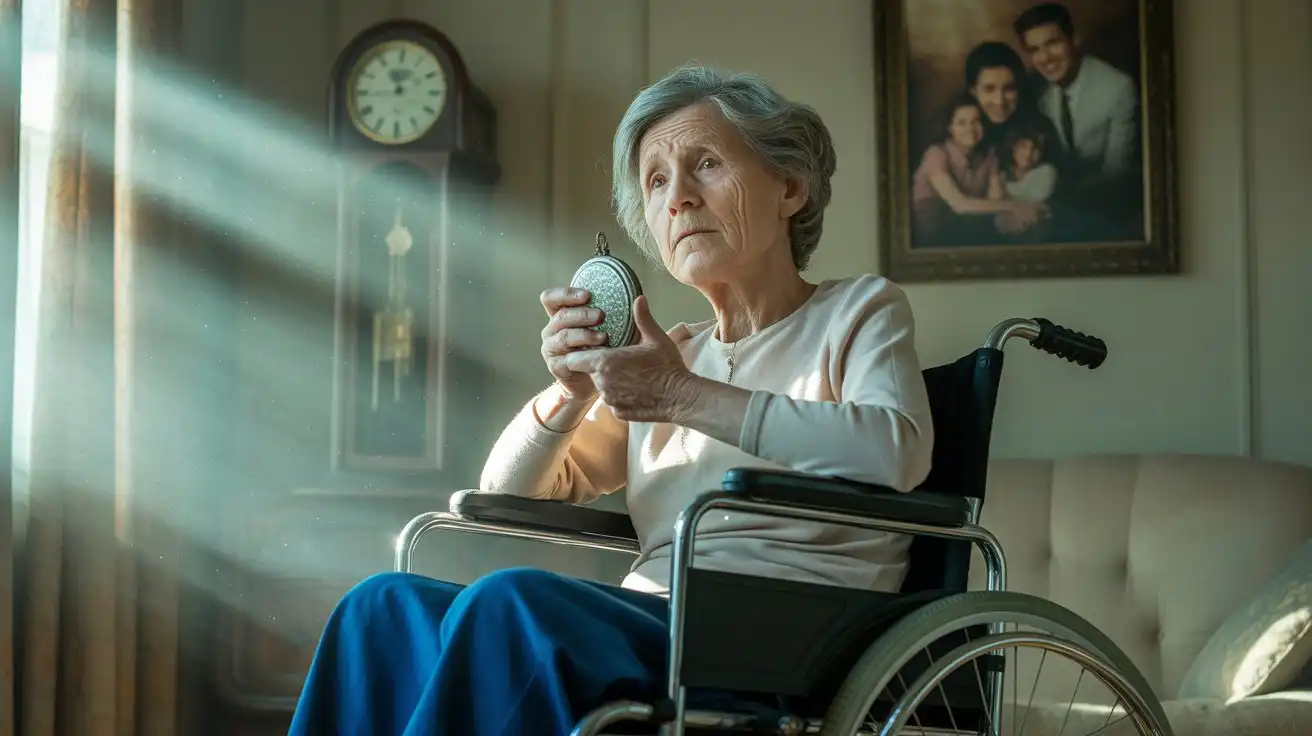Dementia can be a difficult diagnosis for both individuals and their families. It’s a term used to describe a group of symptoms that affect memory, thinking, and social skills, impacting a person’s ability to perform everyday activities. While there is no cure for dementia, early intervention can significantly slow its progression, improve quality of life, and ensure that individuals get the care they need.
In this article, we’ll explore practical steps for treating dementia, answer some common questions, and discuss how to manage the condition in a way that offers the best possible outcomes. Whether you’re concerned about the early signs or wondering about the best treatment options, this guide will help you navigate the journey with more clarity and compassion.
Understanding Dementia: What It Is and How It Affects Us
At its core, dementia is a decline in cognitive function severe enough to interfere with daily life. It’s not a single disease but a group of symptoms caused by various underlying conditions, with Alzheimer’s disease being the most common form. Other types include vascular dementia, Lewy body dementia, and frontotemporal dementia.
What happens in dementia is that brain cells become damaged, affecting one’s memory, thinking abilities, and even behavior. As the brain struggles to function, the individual may start forgetting important details, losing track of time, or experiencing confusion. Over time, this leads to challenges with everyday tasks, such as cooking, managing finances, and even recognizing familiar faces.
1. What is Dementia and How Does it Affect the Brain?
Dementia is not a specific disease but rather a general term used to describe a group of symptoms that affect memory, communication, and the ability to perform daily tasks. Alzheimer’s disease is the most common form of dementia, but there are other types such as vascular dementia, Lewy body dementia, and frontotemporal dementia. Each of these types has distinct symptoms and causes, but they all share common characteristics such as memory loss, confusion, and changes in behavior.
Dementia occurs when the brain cells are damaged, leading to a decline in cognitive functions. The damage can be caused by a variety of factors, including neurodegenerative diseases, brain injury, or lack of blood flow to the brain. As the disease progresses, it becomes increasingly difficult for individuals to remember information, recognize people, and complete everyday activities.
2. What Are the Warning Signs of Dementia?
Recognizing the warning signs of dementia early can make a significant difference in managing the condition. While symptoms vary depending on the type of dementia, some common early signs include:
- Memory Loss – Frequent forgetfulness, particularly in relation to recent events, conversations, or appointments.
- Difficulty Planning or Solving Problems – Struggling to follow a recipe, manage finances, or complete familiar tasks.
- Confusion with Time or Place – Losing track of the date or forgetting how one got to a particular location.
- Difficulty with Words – Struggling to find the right words or repeating oneself.
- Decreased Judgment – Exhibiting poor decision-making, such as wearing inappropriate clothing or giving away large sums of money.
- Changes in Mood and Personality – Becoming easily upset, anxious, or withdrawn.
- Withdrawal from Social Activities – Losing interest in activities once enjoyed, like hobbies or spending time with family and friends.
3. Is it Illegal to Leave a Dementia Patient Alone?
One of the most pressing concerns for caregivers and families is whether it is safe to leave someone with dementia alone. The answer depends on the severity of the dementia and the individual’s specific needs. In the early stages, some individuals with dementia may be able to manage alone for short periods. However, as the disease progresses, it becomes increasingly unsafe for individuals with dementia to be left unsupervised. They may forget to turn off appliances, become disoriented, or wander away from home.
It is not illegal to leave a dementia patient alone, but caregivers should carefully assess the risks and ensure proper safeguards are in place. In cases where the individual is at risk of harming themselves or others, additional care and supervision are necessary. Family members should also consider legal options, such as setting up power of attorney, to make decisions on behalf of their loved one when they can no longer do so themselves.
4. When Should a Person with Dementia Stop Living Alone?
Knowing when a person with dementia should stop living alone is crucial. If you notice that your loved one is struggling with daily tasks or has become increasingly forgetful or confused, it may be time to consider additional support. Some key signs that indicate it’s no longer safe for someone with dementia to live alone include:
- Frequent forgetfulness, especially of important events or appointments.
- Increased confusion, such as forgetting how to perform daily tasks or getting lost in familiar places.
- Changes in hygiene, such as neglecting personal care or not maintaining a clean living space.
- Wandering, which can be dangerous, especially if the person gets lost or cannot find their way home.
- Difficulty managing medication or other essential aspects of daily life, such as meals or finances.
If these signs are present, it may be time to discuss alternative living arrangements, such as moving the person into a care facility or bringing in a caregiver for support.
5. Dangers of Living Alone with Dementia
Living alone with dementia can pose significant risks, especially as the disease progresses. Some of the dangers include:
- Increased risk of falls due to impaired coordination and balance.
- Neglecting self-care such as forgetting to eat, bathe, or take medications.
- Wandering and getting lost, which can be a serious safety concern.
- Difficulty managing finances, leading to potential financial exploitation.
- Isolation and depression, which can worsen the symptoms of dementia and affect overall well-being.
Caregivers and family members must monitor the situation closely and provide the necessary support to ensure the safety of their loved ones.
6. What is the Best Treatment for Dementia?
Currently, there is no cure for dementia, but various treatments and interventions can help manage the symptoms and improve the quality of life for those affected. The best treatment plan often involves a combination of medications, therapies, and lifestyle changes.
- Medications – Certain drugs, such as cholinesterase inhibitors (Donepezil, Rivastigmine), may help improve memory and cognitive function in the early to moderate stages of dementia. Medications for depression, anxiety, or sleep disturbances may also be prescribed to manage behavioral symptoms.
- Cognitive therapies – Cognitive stimulation therapy (CST) and reminiscence therapy are designed to engage individuals in activities that stimulate their memory and cognitive abilities. These therapies may help improve cognitive function and reduce behavioral symptoms.
- Physical exercise – Regular physical activity, such as walking, swimming, or yoga, has been shown to improve mood, reduce anxiety, and enhance overall brain health.
- Diet and nutrition – A healthy diet rich in antioxidants, healthy fats, and essential nutrients may help slow the progression of dementia. The Mediterranean diet, which includes fruits, vegetables, whole grains, and healthy fats, is particularly beneficial.
- Social engagement – Staying socially active and maintaining relationships with family and friends can help reduce feelings of isolation and depression in individuals with dementia.
7. How Long Can You Live with Dementia?
The life expectancy of someone with dementia varies depending on factors such as age, overall health, and the type of dementia they have. On average, individuals with dementia live for 4 to 10 years after diagnosis, but some may live longer. The progression of dementia can be slow, but as the disease advances, the individual may require more intensive care and support.
It is important to note that dementia-related complications, such as infections or difficulty swallowing, can impact life expectancy. Care and support from family members and healthcare providers play a significant role in improving quality of life during this time.
8. Best Living Situation for Dementia
The best living situation for someone with dementia depends on the individual’s needs and the stage of the disease. Some options include:
- Living at home with support – In the early stages of dementia, many individuals can live at home with the help of a caregiver or family member. Home care services may be arranged to assist with tasks like medication management, meal preparation, and transportation.
- Assisted living or memory care facilities – As dementia progresses, assisted living facilities or specialized memory care units provide a safe environment for individuals who need more extensive support. These facilities offer 24-hour care, supervision, and activities to engage residents.
- Nursing homes – For individuals with advanced dementia, nursing homes may be the best option. These facilities offer comprehensive medical care, including management of chronic conditions, and are equipped to handle the needs of individuals with severe dementia.
9. Caring for a Parent with Dementia at Home
Caring for a parent with dementia at home can be a challenging but rewarding experience. As a caregiver, it’s important to:
- Set realistic expectations – Understand that dementia is a progressive condition, and there will be good days and bad days. Adjust your caregiving approach accordingly.
- Create a routine – Establishing a daily routine can help reduce confusion and anxiety for individuals with dementia.
- Ensure a safe environment – Remove hazards from the home and make sure that the individual can navigate the space safely.
- Seek support – Caregiving can be emotionally and physically taxing. Don’t hesitate to ask for help from other family members, or consider joining a support group for caregivers.







Be First to Comment